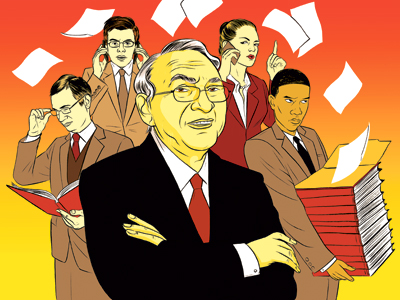A real estate executive who was formerly one of the top officers in the real estate empire of billionaire owner and developer Sheldon Solow has filed what is likely to be a multimillion-dollar lawsuit against Mr. Solow for unpaid retirement funds, The Commercial Observer has learned.
Steven Cherniak worked with Mr. Solow for 26 years before abruptly leaving Mr. Solow’s firm, Solow Realty and Development Company, in 2008. In a case filed in U.S. District Court on July 19, Mr. Cherniak alleges Mr. Solow dismissed him without cause and didn’t pay him a previously agreed-upon retirement package.

In his complaint, Mr. Cherniak describes his last days with the firm in December 2008 when, he asserts, without prior notice, Mr. Solow told him it was “time for [him] to leave.” Mr. Solow then seemed to vacillate, having associates call Mr. Cherniak several times through the weekend to tell him to return to the company. Mr. Cherniak said that by Sunday night, however, he was instructed to stay home, and he was not offered another chance to rejoin the company.
The next year, Mr. Cherniak requested his retirement benefit, an amount that is not revealed in his complaint, but was rebuffed by his successor at the company, an executive named James Yasser. In the claim, Mr. Cherniak points out that Mr. Yasser was eventually terminated by Mr. Solow by the end of 2009 and later filed an employment suit of his own for $1.6 million in unpaid wages that he said had been guaranteed when he joined Mr. Solow’s company.
Mr. Cherniak’s termination traces back to a turbulent period for Mr. Solow, long considered the real estate industry’s—and perhaps America’s—most litigious man.
During the depths of the downturn in 2008, Citibank liquidated more than $400 million in bonds that Mr. Solow had used as collateral against a roughly $500 million loan he had taken with the bank to acquire land on Manhattan’s East Side near the United Nations, where he planned a large complex of residential buildings. Disastrously for Mr. Solow, because the bonds were seized during the economic turmoil of the time, their value had dropped dramatically, and Mr. Solow was eventually forced to pay about $90 million more to Citibank in order to cover the balance of the loan (he sued unsuccessfully to avoid that payment, alleging that the bank had seized his bonds purposely at a point when their value had bottomed out).
The Commercial Observer twice called Mr. Solow’s office to both give him a chance to personally comment and also to request contact information for his media representative. Despite assurances that either Mr. Solow would be in touch or that a spokesperson would respond, neither Mr. Solow nor company representatives returned phone calls last week.



